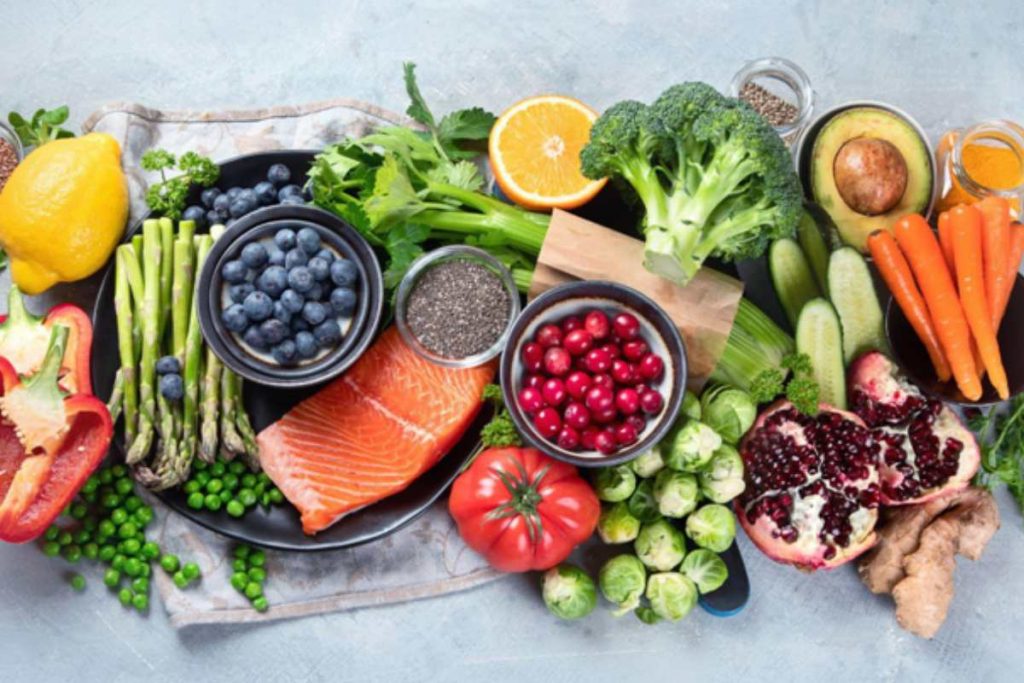Nutritional Advice for the Everyday Person – Popular nutritional advice seems to constantly be changing, often contradicting the previous advice that doles out by the very same experts espousing the new line of thinking. As a result, the average person can find nutritional advice to be terribly confusing.
However, there are some wellness tips that are so well-established that there is little to no debate about them. For instance, the assertion that a sugar-free electrolyte powder is going to be better for you than an electrolyte-infused drink that loads with sugars and artificial chemicals is pretty uncontroversial.
If you are in the market for some straightforward, uncomplicated nutritional advice that you can live by. You’ve come to the right place.
Here are some nutritional tips for the everyday person.
Table of Contents
Cut Down on Sugar
While some like to put a positive spin on the reasons why, sugar adds to almost everything that we eat. This means that the average individual consumes a tremendous amount of refined sugar every year.
High sugar intake is intimately linked with a variety of negative health outcomes, such as obesity, inflammation, diabetes, high blood pressure, fatty liver disease, heart disease, and a cornucopia of other problems.
Thus, it is critical for folks to do all that they can to minimize their sugar consumption. This can achieve by eliminating sugary beverages like sodas, fruit juices, sports drinks, sweetened teas, and others. Additionally, be sure to analyze the nutritional label of everything you buy. Checking the sugar content and looking for one of the many other names by which sugar call.
Minimize Processed Foods
In addition to sugar-laced goods, ultra-processed foods are prolific throughout American grocery stores and restaurants. For those who are unaware, ultra-processed foods are those that have been highly modified or altered. It often contains added ingredients and infuse with various preservatives, chemicals, additives, colors, and similar components.
Some examples of these kinds of foods include:
- Canned foods
- Breakfast cereals
- Potato chips
- Chicken nuggets
- Hotdogs
- Donuts
- Cake
- French fries
- Frozen meals
Ultra-processed foods are often highly palatable (which means they are easy to over-consume), contain low-quality ingredients, and generally lack all nutritional value.
This combination can result in a multitude of different health problems like obesity, heart disease, and a whole host of chronic conditions.
Maintain Your Hydration
Most Americans don’t drink enough water, according to their own reports. This is bad, as hydration is critical to a variety of bodily functions. Of course, the best way to stay hydrated is to avoid sugary beverages and consume water in their place.
However, electrolytes are vital as well. Therefore, instead of drinking a sweet sports drink, it is better to pick up a sugar-free keto electrolyte powder that doesn’t contain a long list of unpronounceable ingredients.
Supplement Your Diet
Because of how commonplace sugary beverages and ultra-processed foods are in the American diet, many people have at least one nutritional deficiency. Some of the most common nutritional deficiencies include vitamin D, iron, vitamin B12, and others.
Thus, it is important to figure out what vitamins and minerals you are not getting enough of and either integrate foods high in those things into your diet or take supplements containing them.
This can achieve by either analyzing the nutrition labels of foods you commonly eat or getting a blood test.
Eat Fatty Fish
Protein is essential to people’s diets, and most Americans opt to get theirs from meat. However, in the U.S., folks tend to eat far more red meat and chicken than they do fish. This is unfortunate given that fatty fish like salmon load with nutrients, including omega-3 fatty acids.
For those who are unaware, omega-3 fatty acids are a powerful anti-inflammatory agent, serve to promote brain health, and help to fight cancer. These are just a couple of the many benefits of omega-3 fatty acids.
Eat Whole Eggs
It is a common saying among naturally confused people that the opinion on eggs is constantly ping-ponging.
Eggs are good for you. They are not associated with an increased risk of heart disease or high cholesterol: they contain antioxidants, iron, a variety of vitamins, and amino acids; and they are a great source of protein.
Go ahead and have your morning eggs, yolk, and all.
Cutting Through the Nutritional Noise
Many people rightly confuse nutritional advice, given its seemingly ever-changing nature.
However, the truth is that you don’t need a college degree to know how to eat well. Instead, stay away from ultra-processed foods, minimize your sugar intake, make sure you are meeting the minimum dietary requirements, and stay well hydrated, and you will be fine.
If you want to make sure that you are staying healthy, be sure to exercise and get a good night’s sleep each night as well.
